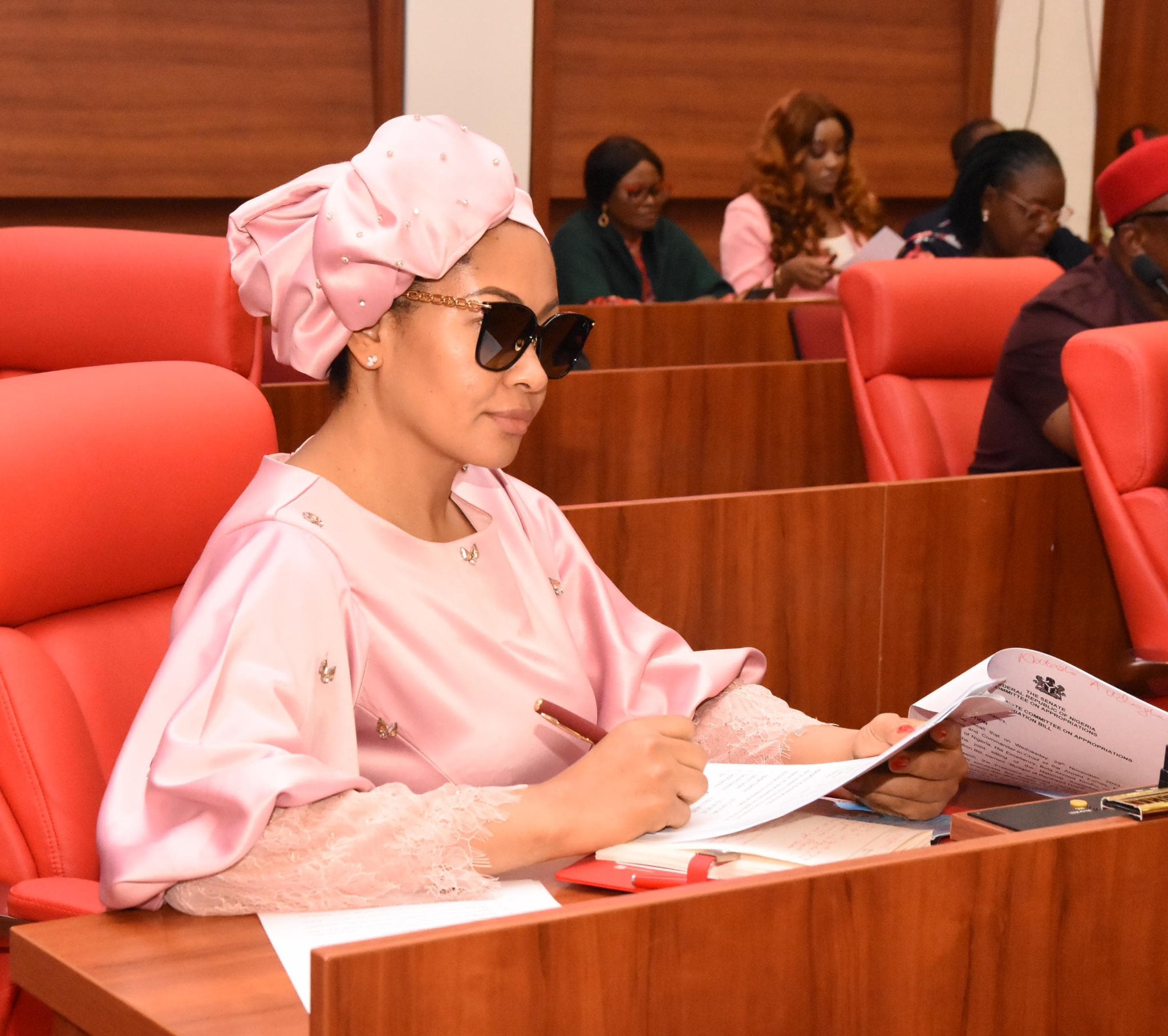BY DAVID BASSEY ANTIA
The feud between Senator Natasha Akpoti-Uduaghan and the Nigerian senate, where she presently serves as the distinguished representative of Kogi Central, finds its genesis in her steadfast refusal to occupy a designated seat assigned in accordance with the senate’s customary protocols and procedural rules.
Following her persistent defiance, and without tendering an apology or showing contrition, the senate responded punitively, imposing a six-month suspension on her. In consequence, Senator Natasha has subjected this legislative sanction to the crucible of judicial review, invoking the judiciary’s supervisory jurisdiction over legislative accountability. Indeed, this is one case that most Nigerians are watching with keen interest.
Analyses of Natasha’s conduct have emerged from diverse ideological prisms. Some interpret her stance through the lens of feminism; others weigh her temperament and disposition against the nobility and decorum expected of parliamentary duty. Yet, from the outset, my own concern has been less about the senator’s personal comportment, even though I find it far below expectation, but more about the constitutional implications of the senate’s action on her constituents.
Advertisement
In my respectful view, the six-month suspension was disproportionate. In meting out punishment to a single legislator, the senate has inadvertently punished the entire constituency of Kogi Central, depriving them of representation and thereby offending the core tenet of representative democracy. While the senator’s provocative posture and apparent disdain for institutional decorum are troubling, we must not lose sight of the broader constitutional injury: the disenfranchisement of the very people she was elected to serve.
It is in this context that I align with the obiter dictum of the learned Hon. Justice Binta Nyako in her recent judgment, wherein Her Lordship aptly stated: “To suspend a member for a period of six months is equal to suspending a member for 180 days, which is the same number of days required by Section 63 of the 1999 Constitution for a member to sit in the House. I find this excessive and overreaching, noting that it prevents the member from complying with their constitutional obligation.”
Section 63 of the Constitution mandates that both the senate and the house of representatives shall sit for not less than 181 days in a year. A suspension that spans nearly the entire legislative calendar year effectively nullifies a senator’s term in office for that period, thereby subverting the democratic mandate and defeating the representative character of our legislative institutions.
Advertisement
Recognising this incongruity, the court suggested, albeit obiter, that the senate should consider amending both its internal rules and Section 14(2) of the Legislative Houses (Powers and Privileges) Act, insofar as these provisions permit disproportionate sanctions that undermine constitutional norms.
Her Lordship further stated: “The Senate has the power to, and I believe should, recall the Plaintiff and allow her to resume representing the people who elected her.”
This pronouncement, in my view, is cogent and jurisprudentially sound. However, it is regrettable that the court, while engaging in robust constitutional commentary, confined these pivotal declarations to the realm of obiter dicta. On the other hand, the court was unequivocal in ordering the plaintiff to pay a fine of ₦5 million to the federal government and to publish a formal apology in two national dailies and on her Facebook page within seven days, as a purgation of contempt.
With the greatest respect, the court missed an opportunity to issue a declaratory order against the senate’s excessive use of disciplinary powers. The ambiguity of the senate rules lends itself to arbitrariness and, in this instance, has facilitated an abuse of institutional power. A clear provision capping the duration of suspension in line with constitutional obligations should be codified. A senator should not, under any guise, be suspended in a manner that renders them incapable of fulfilling the statutory requirement under Section 63 of the Constitution. Today may be Natasha, tomorrow may be another senator, the precedent that this case will leave behind is what should invite circumspection.
Advertisement
The court of appeal, in the instructive case of Amadi v. Acho (2006) All FWLR (Pt. 334) 1949 at 1960, expounded the principle of judicial review as follows: “Judicial review, or judicial control, primarily and practically means review; it is founded on the fundamental principle inherent in the legal system- that powers can be validly exercised only within their true limits. It is a fundamental mechanism for keeping public authorities within due bounds and for upholding the rule of law.”
Where a rule is vague, its operation may become unconstitutional. The judiciary must be seen as an ever-open forum for the ventilation of grievances, particularly those with constitutional implications.
Justice George Oguntade, JSC (as he then was), captured the gravitas of judicial responsibility in his paper at the maiden Hon. Justice Adolphus Karibi-Whyte Convocation Lecture of the Nigerian Institute of Advanced Legal Studies, where he posited: “A judgment is either good or bad depending on the manner it is written. A judgment which does not fairly treat the case of each party, or is skewed against one side, or misapplies the law, is a bad judgment. A good judgment must reflect a clear understanding of the issues, a dispassionate appraisal of both sides’ arguments, and a fair application of the law. The primary duty of the judge is to do justice according to law, bearing in mind his duty to the society at large.”
At a time when the judiciary seeks to redeem its public image and reassert its role as guardian of constitutionalism, a bolder and more declarative judgment on the limits of the senate’s disciplinary powers would have signalled judicial courage and fidelity to the democratic enterprise. It is my considered opinion that the court ought to have made a definitive pronouncement ordering the immediate recall of the senator, not merely suggesting it in passing.
Advertisement
David Bassey Antia is the president of the Faculty of Law, Topfaith University, Mkpatak. He can be contacted via [email protected]
Advertisement
Views expressed by contributors are strictly personal and not of TheCable.










